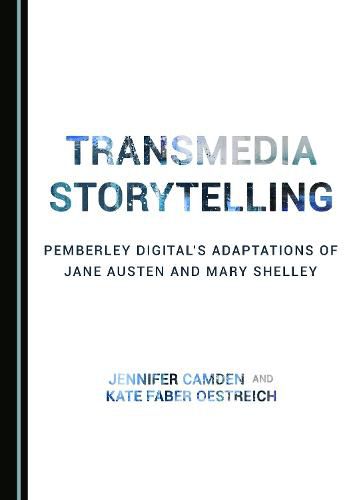Readings Newsletter
Become a Readings Member to make your shopping experience even easier.
Sign in or sign up for free!
You’re not far away from qualifying for FREE standard shipping within Australia
You’ve qualified for FREE standard shipping within Australia
The cart is loading…






This volume charts the evolution of Pemberley Digital’s transmedia adaptations of nineteenth-century novels in order to interrogate the uneasy relationship between transmedia storytelling and consumer culture. It first examines two Austen-centered films, Lost in Austen and Austenland, that present immersive Austen experiences that anticipate Pemberley Digital’s transmedia adaptations, bridging traditional film adaptations and transmedia’s participatory culture. Subsequent chapters turn to Pemberley Digital’s transmedia adaptations of Austen’s and Shelley’s novels to argue that, although such adaptations may appear feminist in their emphasis on female protagonists, their larger narratives expose a subtext of anxiety about unstable gender roles, financial vulnerability, and the undervaluation of career-specific skill sets, both for the characters and the production company itself. The study provides a robust theoretical framework within which to read transmedia adaptations of classic literature, illuminating both the potential of, and the challenges facing, digital and transmedia storytellers and participants.
$9.00 standard shipping within Australia
FREE standard shipping within Australia for orders over $100.00
Express & International shipping calculated at checkout
This volume charts the evolution of Pemberley Digital’s transmedia adaptations of nineteenth-century novels in order to interrogate the uneasy relationship between transmedia storytelling and consumer culture. It first examines two Austen-centered films, Lost in Austen and Austenland, that present immersive Austen experiences that anticipate Pemberley Digital’s transmedia adaptations, bridging traditional film adaptations and transmedia’s participatory culture. Subsequent chapters turn to Pemberley Digital’s transmedia adaptations of Austen’s and Shelley’s novels to argue that, although such adaptations may appear feminist in their emphasis on female protagonists, their larger narratives expose a subtext of anxiety about unstable gender roles, financial vulnerability, and the undervaluation of career-specific skill sets, both for the characters and the production company itself. The study provides a robust theoretical framework within which to read transmedia adaptations of classic literature, illuminating both the potential of, and the challenges facing, digital and transmedia storytellers and participants.